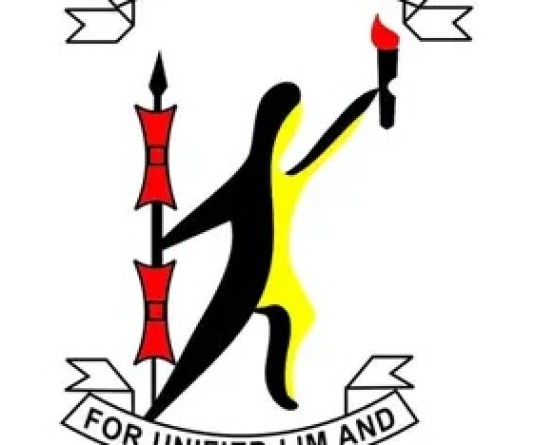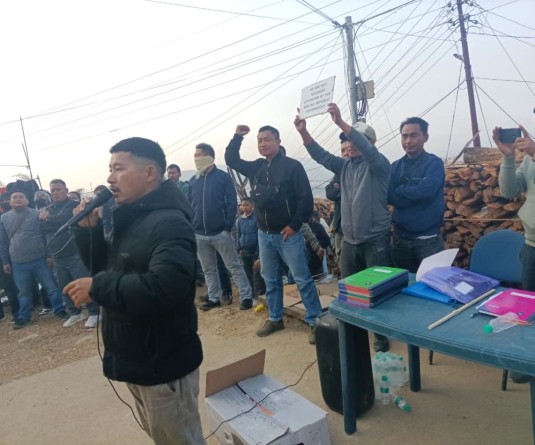
Dimapur, September 3(MExN): The Supreme Court has closed legal proceedings against the State of Nagaland and 16 other States and UTs for failure to comply with previous court orders mandating the implementation of the Second National Judicial Pay Commission's (SNJPC) recommendations regarding pension arrears and retirement benefits for judicial officers.
On August 22, the Apex Court called for the personal presence of the Chief Secretary and the Finance Secretary of the 17 state/UTS on August 27 regarding the issue, particularly its January 4, 2024 judgment.
After hearing the matter on August 27, an order issued by the Chief Justice DY Chandrachud-led bench, also comprising Justices JB Pardiwala and Manoj Misra on August 27 informed that the State of Nagaland had submitted an affidavit confirming that the pension arrears had been cleared.
The affidavit, filed on August 16, noted that an amount of Rs 4 crore and Rs 9.32 lakh had been released on July 15 and July 25, 2024, respectively, for the payment of arrears of allowances.
So far, the State has made payments of Rs 10 crores, it added.
However, the Nagaland Government’s affidavit clarified that the amount does not include pension, family pension, and pension arrears to the retired Judicial Officers, as the “documentation regarding this group of officers is done by the Treasury on instructions of the Accountant General’s office and not routed through the Law and Justice Department.”
The counsel for the Nagaland Government also submitted before the Court that no risk allowance has been sanctioned, as civil servants in the State are also not receiving such payments. This statement was contested by the senior counsel appearing on behalf of the judicial officers of Nagaland.
However, the Bench noted that the Court’s January 4 judgment had clarified that the payment of risk allowance should be made at the same rate as civil servants.
Whether any risk allowance is paid to the civil servants in Nagaland should be verified by the Committee of the High Court constituted by the January 4 judgment and If no risk allowance is paid to civil servants, there is no obligation to pay it to the judicial officers, the Bench added.
With regard to the grant of advance increments for acquiring higher qualifications, the Nagaland Government counsel stated that the January 4 directions had been duly complied with.
However, the issue of whether advance increments should be granted at every ACP (Assured Career Progression) stage was placed before the HC Committee and yet to be resolved, the counsel added.
On this issue, both the amicus curiae of the case and the senior counsel appearing on behalf of the All India Judges Association (AIJA) noted that this is a concern for every State.
Accordingly, they stated that they would prepare a compilation indicating how the directions contained in the January 4 judgment had been implemented so that comprehensive directions on a pan-India basis could be issued.
Thus, the Bench stated that the issue of the payment of increments for higher qualifications would be dealt with on a pan-India basis later.
With this, the proceedings against the State of Nagaland on this aspect stand closed, and the personal presence of the Chief Secretary and the Finance Secretary is dispensed with, it added.
The states/UTs appearing before the Court on August 27 were: (i) Tamil Nadu; (ii) Madhya Pradesh; (iii) Andhra Pradesh; (iv) West Bengal; (v) Chhattisgarh; (vi) Delhi; (vii) Assam; (viii) Nagaland; (ix) Meghalaya; (x) Himachal Pradesh; (xi) J&K; (xii) Ladakh; (xiii) Jharkhand; (xiv) Kerala; (xv) Bihar; (xvi) Haryana; and (xvii) Odisha.
All were dispensed with from future personal appearances following submissions of compliance affidavits.
Meanwhile, apart from the issue of compliance with the January 4 judgement in the writ petitions filed by the AIJA for implementation of the SNJPC recommendations, the apex court also issued several directions.
Among others, it directed that if any individual grievance of judicial officers in any State persists, it may be brought to the attention of the HC Committee constituted after the January 4 judgment.
This would also cover any grievance regarding specific allowances, which should be resolved at the State/UT level by the Committee, it said.
The Committee was also directed to ensure that a Standard Operating Procedure is in place, as mandated by the January 4 judgment, by September 30, 2024.
The Court also urged the Committee to meet once every month to ensure that any outstanding issues regarding the grievance of the officers concerning the payment of allowances are resolved expeditiously.
The apex court will hear the aspect of the National Pension Scheme in the petitions on September 17.






